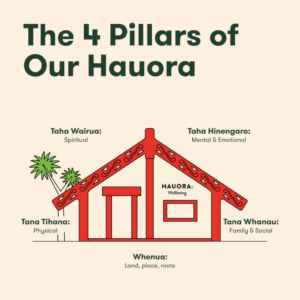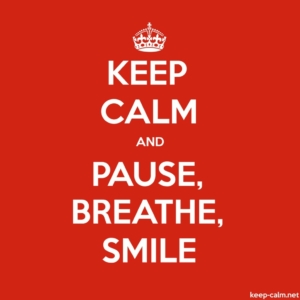With its strong foundations and four equal sides, the symbol of the wharenui illustrates the four dimensions of Māori well-being.
strong foundations and four equal sides, the symbol of the wharenui illustrates the four dimensions of Māori well-being.
Should one of the four dimensions be missing or in some way damaged, a person, or a collective may become ‘unbalanced’ and subsequently unwell.
For many Māori modern health services lack recognition of taha wairua (the spiritual dimension). In a traditional Māori approach, the inclusion of the wairua, the role of the whānau (family) and the balance of the hinengaro (mind) are as important as the physical manifestations of illness.
Taha tinana (physical health)
The capacity for physical growth and development.
Good physical health is required for optimal development.
Our physical ‘being’ supports our essence and shelters us from the external environment. For Māori the physical dimension is just one aspect of health and well-being and cannot be separated from the aspect of mind, spirit and family.
Taha wairua (spiritual health)
The capacity for faith and wider communication.
Health is related to unseen and unspoken energies.
The spiritual essence of a person is their life force. This determines us as individuals and as a collective, who and what we are, where we have come from and where we are going.
A traditional Māori analysis of physical manifestations of illness will focus on the wairua or spirit, to determine whether damage here could be a contributing factor.
Taha whānau (family health)
The capacity to belong, to care and to share where individuals are part of wider social systems.
Whānau provides us with the strength to be who we are. This is the link to our ancestors, our ties with the past, the present and the future.
Understanding the importance of whānau and how whānau (family) can contribute to illness and assist in curing illness is fundamental to understanding Māori health issues.
Taha hinengaro (mental health)
The capacity to communicate, to think and to feel mind and body are inseparable.
Thoughts, feelings and emotions are integral components of the body and soul.
This is about how we see ourselves in this universe, our interaction with that which is uniquely Māori and the perception that others have of us.
This model was developed by Mason Durie.
Pause, Breathe, Smile

Healthy minds
Pause Breathe Smile is a mind health programme designed to equip children aged five to 12 with tools to manage the ups and downs of life and set them up for a healthy future. Teachers all receive PLD around the Pause, Breathe, Smile Programme and this is used across the school to support Wellbeing.
